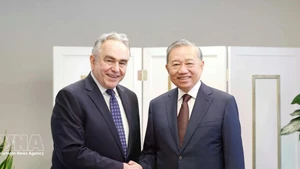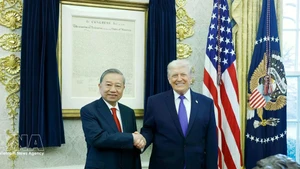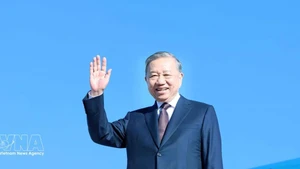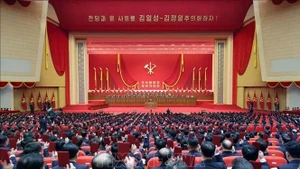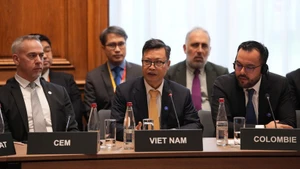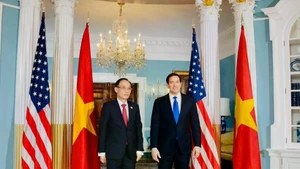Speaking at the event, Hang affirmed that the Copenhagen Conference in 1995 was a call for strong action, but global progress has not been not sustainable when more than 800 million people are still living in poverty, youth unemployment is high, and inequality in education and employment persists, especially for vulnerable groups.
The Vietnamese diplomat emphasised that this summit and the Doha Political Declaration provide an opportunity for the international community to strengthen solidarity and continue to persevere in the spirit of Copenhagen Conference 1995 and the noble goals of the United Nations Charter.
On this occasion, Hang highlighted Viet Nam’s remarkable achievements over the past three decades as vivid evidence of the effective integration of the Copenhagen Action Plan 2025 into Viet Nam’s national strategies.
For example, Viet Nam’s poverty rate dropped dramatically from 58.1% to just 1.3% in 2025, unemployment fell from 7% to 2.2%, and illiteracy among working-age people was almost eradicated.
Hang reaffirmed that ensuring social welfare and inclusive growth remains a top priority in Viet Nam’s new development phase, with all resources directed toward improving the well-being and happiness of its people.
From Viet Nam’s experience, she proposed three key solutions to accelerate the implementation of the Copenhagen Action Plan and Doha Political Declaration.
First, it is necessary to promote inclusive international cooperation, prioritising South–South and trilateral cooperation in poverty reduction and job generation. Multilateral forums need to support countries in aligning their national strategies with global development goals.
The second solution is to innovate the development model and accelerate digital transformation, considering it a key driver for effective social development. This includes promoting an e-government system to implement health care, education, and social welfare services, along with training high-quality human resources.
Third, it is important to mobilise sustainable financing through the establishment of national social development funds with the support of international organisations and the participation of the private sector. Innovative financial mechanisms will help diversify resources and strengthen financial sustainability in promoting social development.

Hang affirmed that, as a reliable, active, and responsible partner of the international community and the United Nations, Viet Nam is committed to continuing to join hands with other countries to advance global efforts toward a sustainable and inclusive future for all.
Within the framework of the summit, Hang on November 5 held meetings with Gulf Cooperation Council (GCC) Secretary General Jasem Mohamed Albudaiwi, Bhutanese Minister of Foreign Affairs and Trade D.N. Dhungyel, Qatar’s Minister of State for Foreign Trade Ahmed bin Mohammed Al-Sayed, and Tariq Alhamad, Deputy Minister for International Affairs at Saudi Arabia’s Ministry of Human Resources and Social Development.
During the meetings, she briefed the partners on Viet Nam’s recent socio-economic development and key directions for the coming period.
GCC Secretary-General Albudaiwi expressed his admiration for Viet Nam’s achievements over nearly 40 years of Doi Moi (Renewal), commending its growth orientations and development goals. He affirmed his support for accelerating negotiations on a free trade agreement (FTA) between Viet Nam and the GCC, and expanding cooperation between Viet Nam, the GCC Secretariat, and member states.
Minister Dhungyel affirmed that Bhutan attaches great importance to its ties with Viet Nam, stressing that there remains substantial potential for bilateral cooperation. He agreed to further strengthen the partnership, particularly in tourism, investment, and business connectivity.
At her meeting with Qatari Minister of State for Foreign Trade Al-Sayed, Hang underlined that Viet Nam–Qatar relations have been elevated to a new height, especially following the official visit to Qatar by Vietnamese Prime Minister Pham Minh Chinh in October 2024. She suggested both sides accelerate negotiations for the Vietnam-GCC FTA and boost cooperation in investment, trade, Halal industry, and business connection.
Al-Sayed welcomed the proposal, highlighting vast opportunities for collaboration and encouraging enhanced trade promotion between the two countries. He emphasised that Qatar could serve as a gateway for Vietnamese enterprises to expand cooperation with other GCC members.
In her meeting with Deputy Minister Tariq Alhamad, Hang underscored the importance of advancing Viet Nam–Saudi Arabia relations to a new cooperation framework that matches the growing potential of both sides, contributing to the implementation of commitments made by senior leaders.
Stressing the growing bilateral relationship, he provided information on Saudi Arabia’s labour market and foreign worker policies. He proposed that the two sides continue active discussions toward signing future cooperation agreements, including one on the recruitment of Vietnamese workers for employment in Saudi Arabia.
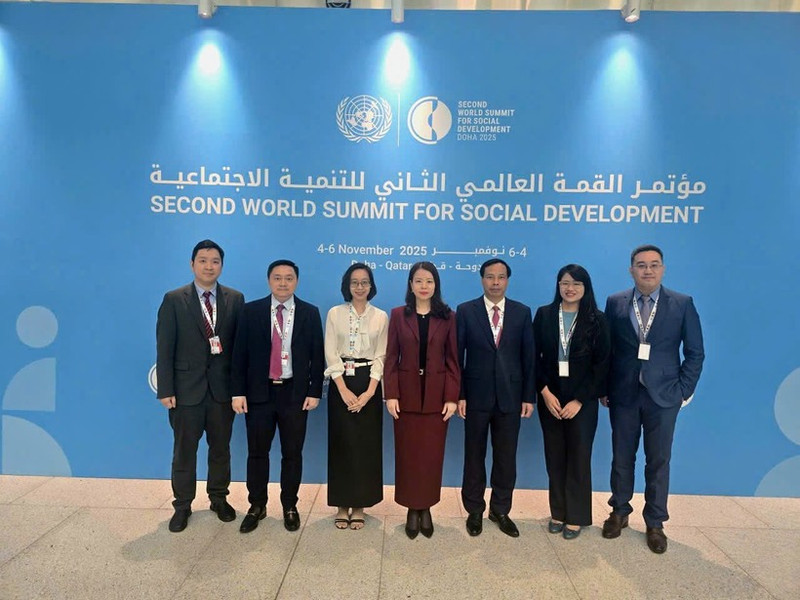
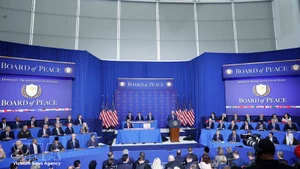
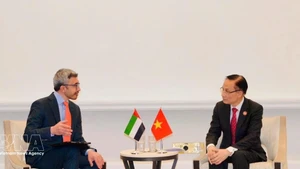
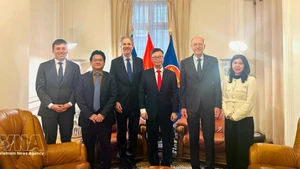
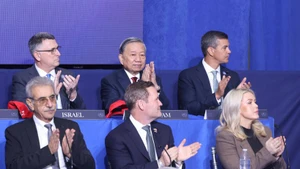
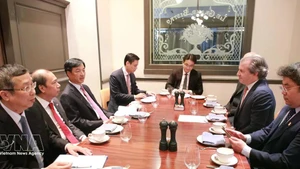
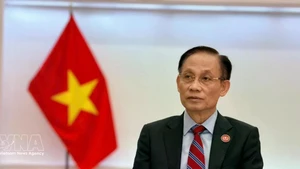
![[In pictures] Party General Secretary To Lam meets US President Donald Trump](https://en-cdn.nhandan.vn/images/dcd63867a0eed4c7753eb4bfb346593abc1ce710dfab8ad1b9aebd75ea6bf930b2ea13e4664779d689ba40aadd80f76d5d05d1208720fd7b0d811ace3a3297321c78cf738400e136e3f2d8790b24d43646e46edbe19517144a88f6ffb0d528f153574a7109328cc0949e4a4c16433c2ff751541639eefe4490518227264cbf8e/vna-potal-tong-bi-thu-to-lam-gap-tong-thong-hoa-ky-donald-trump-8599945.jpg.webp)
